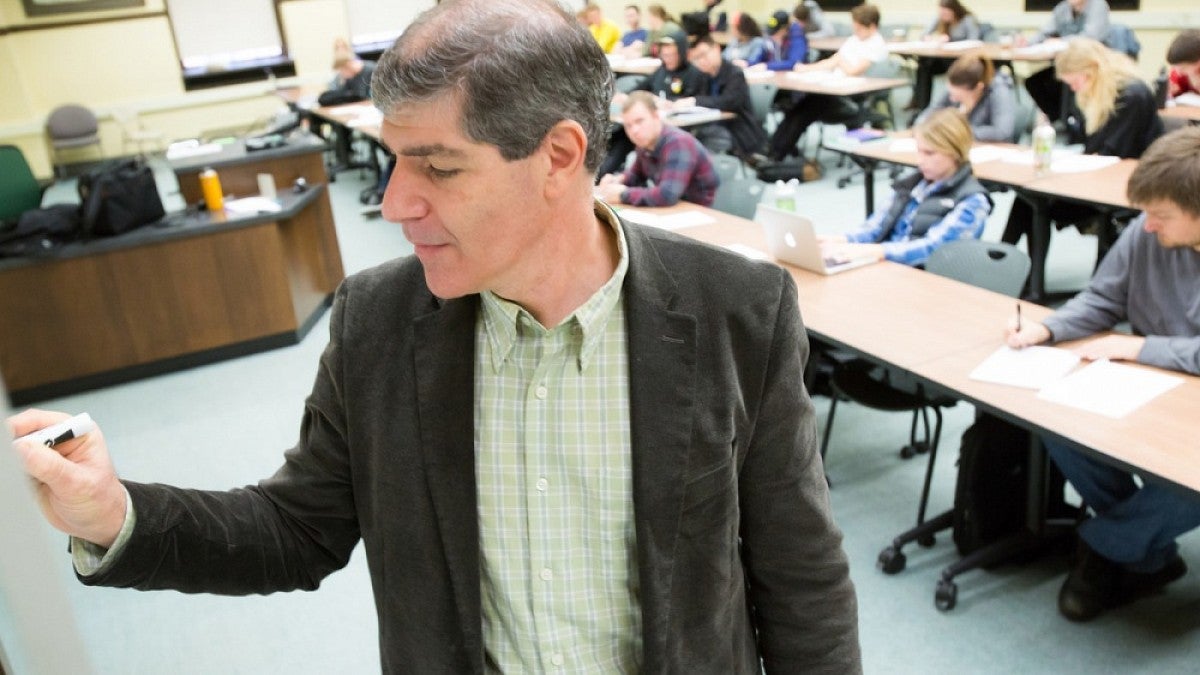Debates about how to deal with undocumented immigration are nothing new, but now President Donald Trump’s administration is working to restrict channels for legal immigration.
In exchange for providing legal status to young “Dreamer” immigrants protected by the Deferred Action for Childhood Arrivals program, the administration is negotiating limits to two types of visas. UO political science professor Dan Tichenor, an expert in U.S. immigration history and politics, provided commentary to the San Francisco Chronicle on the topic.
Trump allegedly made disparaging comments about African countries at an Oval Office meeting last week, suggesting that the U.S. should focus on bringing immigrants from countries like Norway. Tichenor pointed out the parallels between this sentiment and the highly restrictive national-origins quotas in U.S. immigration from 1924 to 1965.
“If the president thinks Norway is the ideal, then it fits perfectly into that,” said Tichenor. “We largely barred Asians and Africans during that period, and we also had really stringent limits on Southern and Eastern Europeans. And we did so very much based on notions of eugenics and other kinds of racist pseudosciences, so by the time we got to the 1960s, immigration reform really placed an emphasis on dismantling these explicitly racist policies.”
Family-based visas, which have been central to U.S. immigration policy since the abolition of national-origin quotas in 1965, and the diversity visa lottery are the two visa categories the Trump administration is working to limit.
“Our policies have always reflected a mix of opening and closing the gates for different kinds of immigrants,” Tichenor said. “Anxieties about the racial composition of newcomers, not to mention religious and ethnic identities, is a constant in the American tradition.”
For more, see “Trump opens new front on legal immigration” in the San Francisco Chronicle.
Tichenor is a Philip H. Knight Professor of Social Science in the political science department and a program director and senior scholar at the Wayne Morse Center for Law and Politics. He studies immigration policy and politics, the American presidency, U.S. political parties and social movements like the civil rights movement and the new Christian Right.


